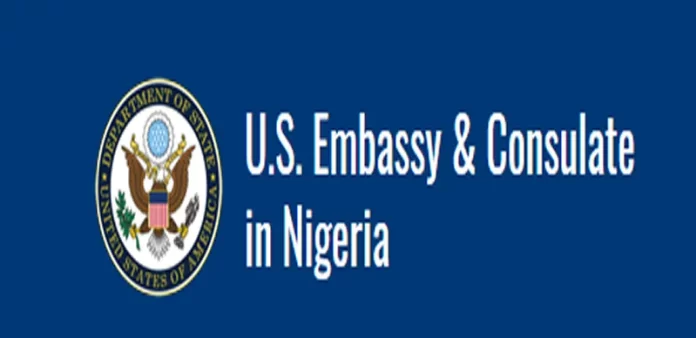The United States embassy in Nigeria serves as the diplomatic mission of the United States to Nigeria.
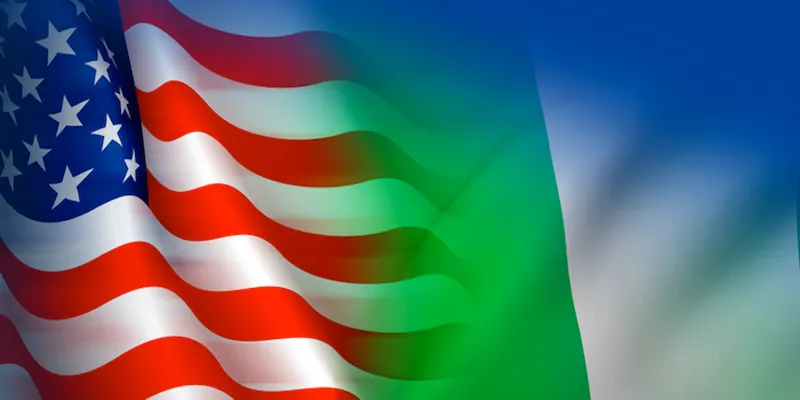
It is responsible for maintaining diplomatic relations between the two countries and providing consular services to American citizens in Nigeria. The embassy also works to promote economic, cultural, and educational ties between the two countries.
The United States established diplomatic relations with Nigeria in 1960, following Nigeria’s independence from the United Kingdom. The first U.S. Embassy in Nigeria was located in Lagos, the former capital of Nigeria. In 1991, the U.S. Embassy was moved to Abuja, Nigeria’s current capital city.
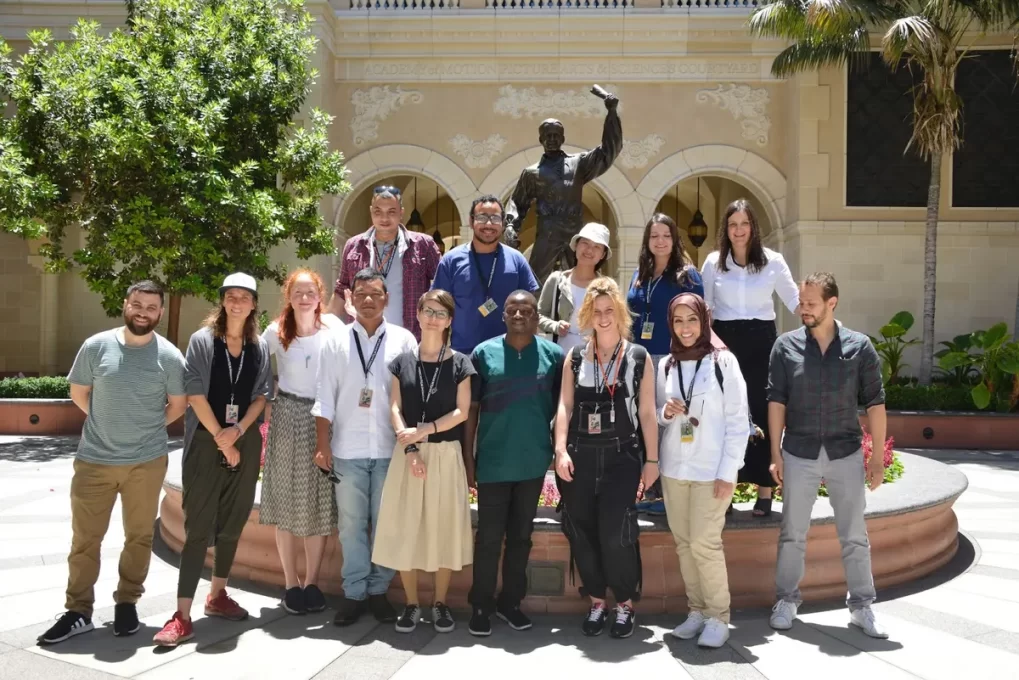
The new Embassy compound was officially opened on August 18, 1991. Since then, the US Embassy in Nigeria has been located in Abuja and continues to support the relationship between the two countries.
How Does the US Embassy in Nigeria Affect Nigerians?
One way the embassy affects Nigerians is by providing consular services, such as issuing visas for travel to the United States. The embassy also works with the Nigerian government on issues related to security and regional stability and provides assistance to Nigeria on issues related to democracy, human rights, and economic development.
Additionally, the embassy works with Nigerian businesses to promote trade and investment between the two countries. It is important to note that the US embassy can also play a role in providing assistance during times of crisis, such as natural disasters or civil unrest.
However, Nigerians may face several issues when trying to obtain a visa from the US Embassy in Nigeria. Some common problems include:
- Difficulty obtaining an appointment: The US Embassy in Nigeria is known to have a high demand for visa appointments, and it can be difficult for individuals to secure a slot.
- Lengthy processing times: The processing times for visas at the US Embassy in Nigeria can be longer than in other countries, which can be a source of frustration for applicants.
- Inadequate document preparation: Many applicants may not have adequate knowledge of the documents required for the visa application process, leading to delays or rejection of the application.
- High denial rates: The US Embassy in Nigeria has a high rate of visa denials, which can be discouraging for applicants.
- Biometric issues: Some applicants may have difficulty providing the required biometric information, such as fingerprints, which can also lead to delays or rejection of the application.
These issues may change over time and may vary depending on the visa category, the applicant’s specific circumstances, and the policies in place at the time.
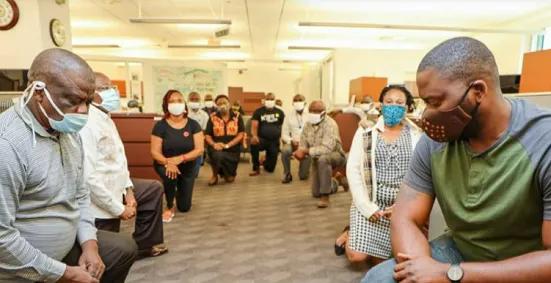
How Can These Problems Be Resolved?
There are several ways that the problems faced by Nigerians at the US Embassy could potentially be resolved:
- Increase in appointment availability: The US Embassy in Nigeria could increase the number of available appointments to reduce the demand and make it easier for applicants to secure a slot.
- Streamline processing times: The US Embassy in Nigeria could work to streamline the visa application and processing process to reduce delays and make it more efficient for applicants.
- Improve document preparation assistance: The US Embassy in Nigeria could provide more detailed information and assistance to applicants on the documents required for the visa application process to help them prepare adequately.
- Increase transparency: The US Embassy in Nigeria could provide more detailed information and explanations of the reasons for visa denials to help applicants understand why their applications were rejected and what they can do to improve their chances in the future.
- Biometric assistance: The US Embassy in Nigeria could set up facilities to assist applicants with providing biometric information, such as fingerprints, to reduce delays and ensure that all required information is collected.
- Increase staff and resources: The US Embassy in Nigeria could increase staff and resources to handle the high volume of visa applications and to ensure that the visa process runs smoothly.
It’s important to note that these solutions will require the involvement of the US Embassy in Nigeria and the US Government.
SEE: The Japa Syndrome: Where is Everybody Running To?
Best Ways for an Embassy to Operate
Embassies are typically responsible for representing their country’s interests in a foreign country, and as such, there are a number of key ways in which an embassy can operate effectively. Some important ways for an embassy to operate include:
- Building and maintaining strong relationships with government officials and other key stakeholders in the host country.
- Providing consular services and assistance to citizens of the embassy’s country who are travelling or living in the host country.
- Promoting economic and cultural ties between the embassy’s country and the host country through trade and investment promotion, cultural exchange programs, and other initiatives.
- Providing accurate and timely information and analysis on the host country’s political, economic, and security developments to the embassy’s government and other relevant stakeholders.
- Providing assistance and support to host country citizens who are seeking to visit, study, or do business in the embassy’s country.
- Working to protect the rights and interests of citizens of the embassy’s country in the host country and to advocate for their well-being in case of any issue.
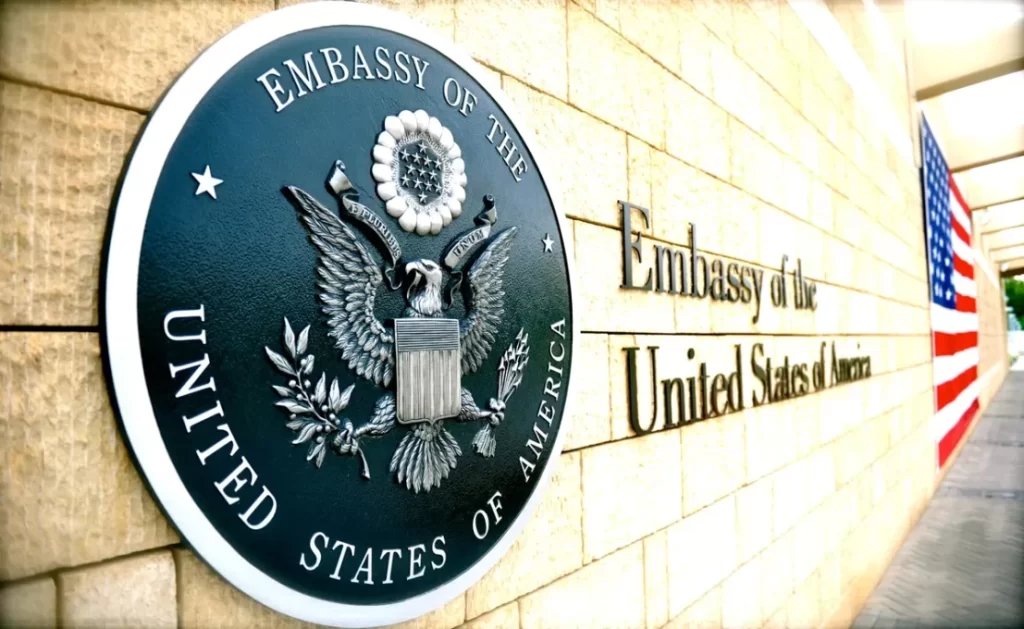
How to Write an Application Letter to the US Embassy
To write an application letter to the US Embassy for a travel coordinator position, you should follow these steps:
- Address the letter to the appropriate person or department at the embassy.
- Begin the letter by stating the purpose of your application, which is to apply for the travel coordinator position.
- Include your relevant qualifications, such as education and work experience in the field of travel coordination.
- Explain why you are interested in the position and why you would be a good fit for the role.
- Include your contact information, such as your phone number and email address, so the embassy can reach you if they are interested in your application.
- Close the letter by thanking the embassy for considering your application and expressing your willingness to answer any further questions.
- Sign the letter.
- Make sure to use a professional tone, spell check and proofread the letter before submitting.
RELATED ARTICLE:
- Slangs in Nigeria: Meaning of Aza, Sapa, and Others
- How to Write a Winning Application Letter in Nigeria
How to Contact the US Embassy in Nigeria
To contact the US Embassy in Nigeria, you can visit the Embassy’s website at https://ng.usembassy.gov/ and find the “Contact Us” page, which will provide you with the Embassy’s phone number and email, and physical address.
Additionally, you can also follow the Embassy’s social media accounts for updates and information.
Scheduling an Appointment with the US Embassy in Nigeria
To schedule an appointment with the US Embassy in Nigeria, you will need to visit the Embassy’s website and look for the “Consular Services” or “Appointments” section.
On this page, you will find instructions on how to schedule an appointment for the specific service you require, such as a visa application or passport renewal.
You may be required to create an account and provide personal information such as your name, contact information, and the reason for your visit. Once you have completed the scheduling process, you will receive a confirmation email with your appointment details.
READ: Top 5 Countries with the Most Nigerians
Common Questions Asked by the US Embassy in Nigeria
Here are some common questions that may be asked at the US Embassy in Nigeria:
- What is the purpose of your visit to the United States?
- How long do you plan to stay in the United States?
- Do you have a return ticket?
- Do you have a place to stay in the United States?
- Do you have any family or friends in the United States?
- Do you have any financial support in the United States?
- Do you have a job or business in Nigeria that you will return to?
- Have you ever been denied a visa or entry to the United States before?
- Have you ever been arrested or convicted of a crime?
- Have you ever been associated with any terrorist organisations?
Please note that these are just examples, and the questions may vary depending on the individual and their circumstances.
FAQs
There are three Nigerian Embassies in the United States. They are located in Washington, D.C., New York City, and Houston.
Approximately 195 embassies and consulates of the United States are located in countries around the world. This number may change depending on the political situation and diplomatic relations between the United States and other countries.
You can contact the Embassy’s Consular Section by phone at +234 9 461 4000 during business hours (8:00 a.m. to 4:30 p.m. Monday through Friday, except Nigerian and U.S. holidays) or by email at lagosconsularappointments@state.gov.
You should provide detailed information about your emergency and the reason for your urgent travel. It is also important to note that emergency appointments are typically reserved for life-or-death emergencies.
The United States Embassy in Nigeria is located in Abuja, the capital city of Nigeria. The address is:
Embassy of the United States of America
Plot 1075 Diplomatic Drive
Central District Area
Abuja, Nigeria
Embassies serve as a link between the citizens of a country and their government while they are abroad. They provide consular services such as issuing passports and providing assistance to citizens in emergency situations.
Embassies also promote cultural exchange and act as a liaison between the host country and the country of the embassy. Additionally, they are responsible for protecting and promoting the interests of their country, including economic, political and security issues.



